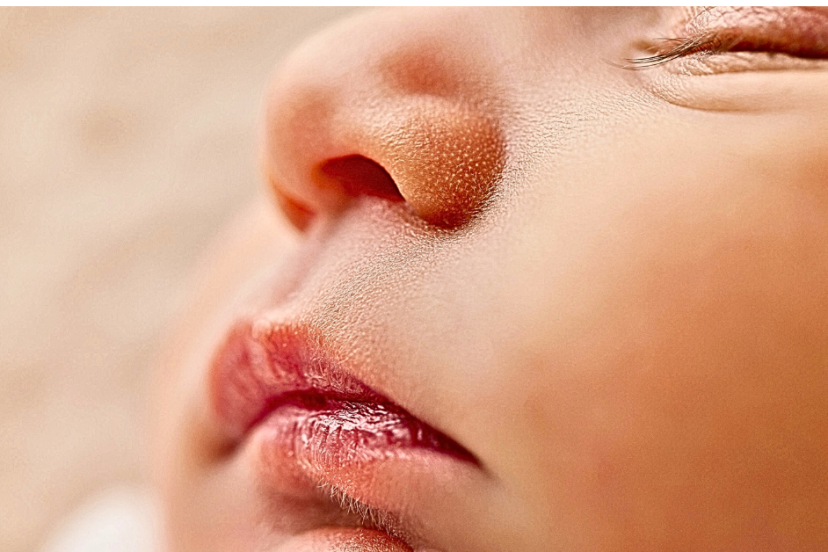How to Relieve Baby Lips Blistered: Effective Solutions
How to heal baby lips blistered. As a caring parent, it can be distressing to see your baby’s lips become blistered and uncomfortable. Baby’s lips getting blistered can be caused by various factors, including environmental conditions, irritants, and even teething. In this article, I will provide helpful suggestions on how to relieve your baby’s blistered lips and explain the reasons behind these suggestions.
Understanding Baby’s Lips Blistered
To effectively address and relieve baby’s lips blistered, it’s important to understand the underlying causes. Lips blistered in babies can occur due to factors such as exposure to extreme weather conditions, excessive drooling, irritants in the environment, or even teething. The delicate skin on their lips is more vulnerable and prone to irritation.
Signs and Symptoms of Baby Lips Blistered
Recognizing the signs of blistered lips in babies is crucial for early intervention. Common symptoms include redness, dryness, chapping, cracking, and the presence of small fluid-filled blisters. These blisters can cause discomfort, making it difficult for your baby to feed, suckle, or soothe themselves.
Prevention Tips for Baby Lips Blistered
Prevention is key when it comes to managing baby’s lips blistered. Here are some helpful tips to protect your baby’s lips from blistering:
1. Hydration and moisture maintenance:
Ensure your baby stays hydrated by offering frequent feeds and also key to detect signs of dehydration in babies . Use a gentle, baby-friendly moisturizer to keep their lips adequately hydrated. Room temperature and humidity can also affect baby’s skin and lips.
2. Protecting lips from extreme weather conditions:
Shield your baby’s lips from harsh weather conditions by using a soft, breathable fabric or a gentle lip balm with SPF when going outdoors.
3. Avoiding irritants and allergens:
Be mindful of potential irritants or allergens in your baby’s environment. Fragrances, certain foods, and saliva can exacerbate blistered lips. Keep their surroundings clean and free from potential irritants.
Home Remedies for Relieving Baby’s Lips Blistered
When it comes to relieving baby’s lips blistered, there are several safe and effective home remedies you can try:
1. Gentle cleaning and hygiene practices:
Clean your baby’s lips using a soft, damp cloth or cotton pad dipped in warm water. Gently pat their lips dry afterward to avoid further irritation.
2. Natural remedies and soothing techniques:
Apply a small amount of pure, organic coconut oil or shea butter to your baby’s lips. These natural moisturizers can help soothe and hydrate their lips.
3. Using safe and effective lip balms or ointments:
Look for baby-friendly lip balms or ointments that are specifically formulated to provide relief for blistered lips. Choose products without fragrances or harsh chemicals.
Cool compresses:
If your baby’s lips are swollen or inflamed, you can use a clean, cool compress to provide temporary relief. Gently apply the compress to their lips for a few minutes at a time.
Offering a chilled teething toy:
If teething is a contributing factor to your baby’s blistered lips, provide them with a chilled teething toy to help soothe their gums and divert their attention from licking or biting their lips.
Seeking Medical Advice for Severe Cases
In most cases, baby’s lips blistered can be effectively managed at home. However, if your baby’s condition worsens or if you notice signs of infection, it’s essential to seek medical advice. Consult a healthcare professional if:
1. The blistered lips show signs of pus, excessive redness, or spreading rash.
2. Your baby is experiencing severe pain, fever, or difficulty feeding.
3. The blistered lips don’t improve or heal within a week with home /remedies.
A healthcare professional can evaluate your baby’s condition, provide a proper diagnosis, and recommend suitable treatment options if necessary.
Dos and Don’ts for Managing Baby’s Lips Blistered
To ensure the effective management of your baby’s blistered lips, here are some dos and don’ts to keep in mind:
Dos:
1. Keep your baby well-hydrated by offering frequent feeds or sips of water (for older babies).
2. Use gentle and baby-friendly products when moisturizing their lips.
3. Practice good hand hygiene to minimize the risk of infection.
4. Be patient and consistent with the application of remedies or ointments.
5. Monitor their progress and seek medical advice if needed.
Don’ts:
1. Avoid picking or peeling the blisters, as this can lead to infection or scarring.
2. Refrain from using adult lip balms or products containing fragrances, dyes, or harsh chemicals.
3. Resist the temptation to overapply moisturizers, as excessive moisture can worsen the condition.
4. Do not use teething gels or medications without consulting a healthcare professional.
5. Comforting and Supporting Your Baby
During the healing process, it’s important to provide comfort and support to your baby:
Offering gentle cuddles:
Comfort your baby with gentle cuddles and soothing words to help them feel secure and loved.
Maintaining a calm environment:
Create a peaceful environment for your baby, minimizing exposure to loud noises or stressful situations that can potentially exacerbate their discomfort.
Ensuring proper nutrition and hydration:
Ensure your baby is receiving adequate nutrition and staying hydrated. If breastfeeding, offer frequent nursing sessions. For older babies, provide age-appropriate solid foods and fluids.
Closing remarks
Taking care of your baby’s blistered lips requires attention, patience, and gentle care. By following the prevention tips, utilizing home remedies, seeking medical advice when necessary, and providing comfort and support.
FAQ’s
1. What causes blistered lips in babies?
2. How can I relieve my baby’s blistered lips?
3. Can I use over-the-counter creams or ointments?
4. Are there any natural remedies for blistered lips in babies?
5. Should I seek medical attention for severe blistering or persistent symptoms?
*We may earn a commission from purchases made through our links, at no cost to you. This does not affect our product recommendations. Please see our disclosure to learn more.




